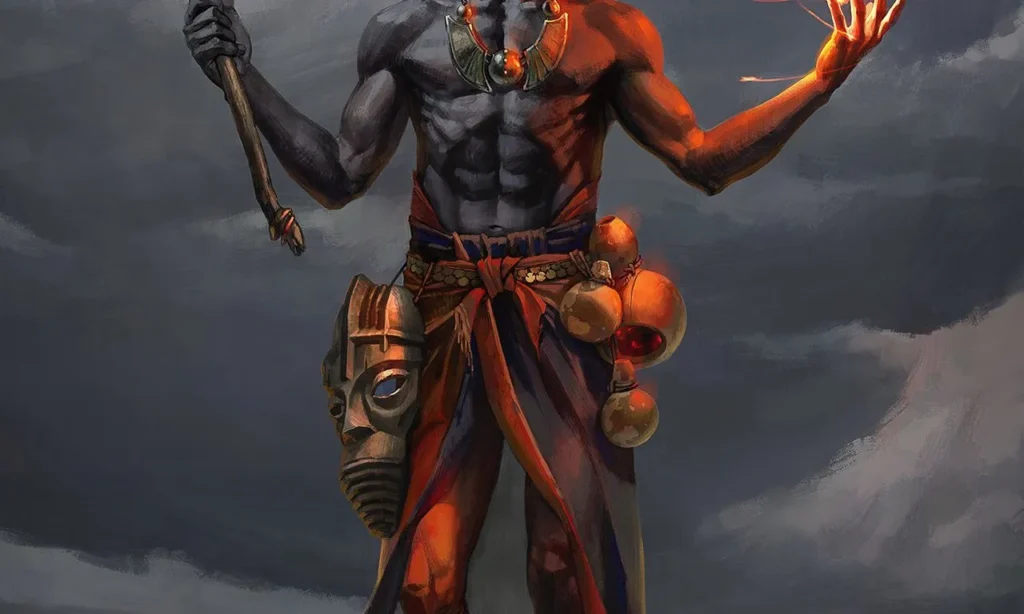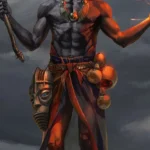 Tricksters have always held a unique place in mythology and folklore across various cultures and civilizations. They embody the essence of mischief, cunning, and unpredictability, often blurring the lines between good and evil.
Tricksters have always held a unique place in mythology and folklore across various cultures and civilizations. They embody the essence of mischief, cunning, and unpredictability, often blurring the lines between good and evil.
Among the myriad trickster figures, two stand out prominently in their respective mythologies: Esu in Yoruba mythology and Loki in Norse mythology.
Despite originating from different cultures and continents, the parallels between these tricksters are striking, offering fascinating insights into the human psyche and the universal themes embedded in storytelling.
Esu: The Yoruba Trickster:
In Yoruba mythology, Esu (also known as Eshu) is a complex deity associated with communication, crossroads, and trickery. He is considered a divine messenger, facilitating communication between humans and the gods, yet his mischievous nature often leads to chaos and confusion.
Esu is portrayed as a shape-shifter, capable of assuming various forms and personas, making it challenging to predict his actions. His role as a trickster is multifaceted, ranging from playing pranks on humans to testing their morality and wisdom.
Esu’s portrayal reflects the Yoruba belief in the balance between order and chaos, as well as the interconnectedness of the spiritual and material worlds.
Despite his penchant for mischief, Esu is neither wholly benevolent nor malevolent; rather, he embodies the ambiguity inherent in human nature, challenging conventional notions of morality and righteousness.
Loki: The Norse Trickster:
In Norse mythology, Loki occupies a similar role as the quintessential trickster figure. Known as the god of mischief, Loki is a complex and enigmatic character whose actions often result in both calamity and redemption.
Unlike other gods who embody noble virtues such as courage and wisdom, Loki’s motivations are driven by his desire for chaos and disruption.
Loki’s cunning and deceitfulness are evident in his numerous exploits, from tricking the gods into undesirable situations to engineering the downfall of mighty figures like Balder, the beloved son of Odin.
Despite his antagonistic tendencies, Loki occasionally aids the gods with his cunning intellect and shapeshifting abilities, blurring the boundaries between friend and foe.
Parallels and Contrasts:
While Esu and Loki originate from distinct cultural backgrounds, their similarities are undeniable. Both are trickster figures revered for their wit, unpredictability, and ability to challenge societal norms. They serve as catalysts for change, disrupting the status quo and prompting individuals to question their beliefs and values.
Moreover, Esu and Loki share common attributes such as shapeshifting abilities, mastery of language, and a penchant for mischief.
Both deities inhabit liminal spaces – Esu at crossroads and Loki at the boundaries between the worlds – symbolizing their role as intermediaries between different realms.
However, there are also notable differences between Esu and Loki, reflecting the unique cultural contexts from which they emerge.
Esu is deeply intertwined with Yoruba cosmology and spirituality, embodying the principles of balance and reciprocity inherent in the Ifá tradition. In contrast, Loki’s portrayal in Norse mythology is marked by a sense of existential nihilism and moral ambiguity, reflecting the harsh and unforgiving landscape of the Viking Age.
Conclusion:
The study of trickster figures like Esu and Loki offers valuable insights into the human condition and the universality of storytelling. Despite originating from diverse cultural backgrounds, these tricksters share common traits and themes that resonate across time and space.
Whether they are revered as divine messengers or feared as agents of chaos, tricksters remind us of the inherent complexity of human nature and the perennial struggle between order and disorder.
In exploring the parallels and contrasts between Esu and Loki, we gain a deeper appreciation for the rich tapestry of mythological traditions that continue to captivate and inspire us across ages.













